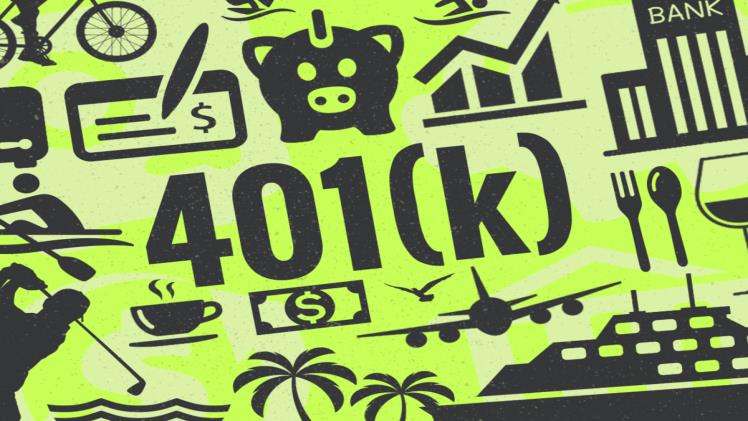Do you know what 401(k) plans are and what they do?
401(k) plans are offered by employers to help workers save for retirement and invest. Tax deductions are available for employees who contribute to their 401(k) plans. An automatic withdrawal from the employee’s paycheck is invested in the funds of the employee’s choice (from a list of available funds). Age 50 and older can contribute $26,000 and $27,000 respectively to 401(k)s in 2021 and 2022.
In the tax code, the plan is named after a subsection 401(k) because it was established by that section. Contribution to individual accounts is automatic when employees set up payroll deductions. If you withdraw after retirement, you may qualify for a tax break based on either your contributions or your withdrawals.
Getting a free money bonus during employee orientation is the best part of employee orientation. Oh yeah! What happened to my 401k?
401(k)s are easy to get.
401(k) plans are provided by employers. Not every employer offers 401(k) plans. This should not discourage you. You can still benefit from the same tax benefits with a traditional IRA, the other big retirement savings vehicle.
You might be wondering: what exactly is an IRA? In addition to their benefits (a broader selection of investments and lower fees), these accounts have some drawbacks (lower contribution amounts and restrictions for high income earners). IRAs and 401(k)s differ in many ways. Both can be used simultaneously, if preferred.
What are the benefits for you?
Savings can often be matched by your employer. 401(k)s get most of the attention because of employer match. You may want to sign up if you work for a company that offers a match of up to 6% of your contributions – for example, a dollar-for-dollar match or a fifty-cent-on-the-dollar match. Getting that free money is as simple as contributing enough to your account.
By using our 401(k) calculator, you can figure out how much money you will save in a 401(k) over time, including incremental changes like company matches.
As well as the traditional 401(k), there is also the Roth 401(k). Traditional 401(k)s offer tax breaks on your savings. After-tax contributions to a 401(k) cannot be deducted from taxes for that year. Roth contributions, however, may be deducted later.
Pretax contributions make saving a little easier. 401(k) plans typically deduct contributions from your paycheck before the IRS takes its cut, so your savings are doubled. Each dollar you earn is normally deducted by Uncle Sam of 20 cents. In the absence of a 401(k), a $1,000 income needs to be saved $800 each month out of pocket – $800 plus $200 for the IRS’s share. When a person says you will not miss the money, it is what they mean – whoever “they” may be in your life.
Contributions can reduce taxes significantly. 401(k) contributions before tax reduce your taxable income in addition to giving you greater savings potential.
Let’s say you make $65,000 a year and contribute $19,500 to your 401(k). You will not owe taxes on the entire $65,000 you earned because you will pay income taxes on only $45,500 of your salary. You will be able to save $19,500 by saving for the future.
Uncle Sam does not impede investment in a 401(k). Once in your 401(k) account, your funds remain tax-free. 401(k)s, whether Roth or traditional, are tax-free. Investment growth is tax-free as long as it remains in your account. Tax benefits are not provided. Distributions are not taxed. Capital gains are not taxed.
… until further notice. Tax-repellent 401(k)s don’t last forever. What about those tax deductions from your contributions? Expect them to return. Contributions and investments in a tax-deferred account grow tax-free until the account is withdrawn at retirement. You’ll need to pay Uncle Sam’s taxes after that.
401(k) early withdrawals and cashing out have three consequences
- We will withhold taxes. 401(k) early withdrawals are generally subject to automatic withholding of 20%. At age 40, you may only receive about 8% of what you took out of your 401(k). Remember that if your withholding exceeds your tax liability, some of it may be refunded to you at tax time.
- If you fail to pay taxes, the IRS will penalize you. A 10% penalty is usually assessed when you file your tax return if you withdraw money from your 401(k) before you’re 5912. The government could take $1,000 of that $10,000 withdrawal. After taxes and penalties, you could take home as little as $7,000 out of your original $10,000.
- Your future may be less secure. It might be especially true if you make the early withdrawal when the market is down. Adam Harding, a certified financial planner in Scottsdale, Arizona, says that pulling funds out can make it difficult to participate in a rebound, which can then negatively impact your entire retirement plan.
What is the process of cashing out a 401(k) after leaving a job?
The time it takes to receive a check after taking money out of 401k can vary depending on who administers your account (usually a brokerage firm, bank, or other financial institution). Before withdrawing money from your retirement account, you may need to make some quick cash or look into other financial crisis options.


